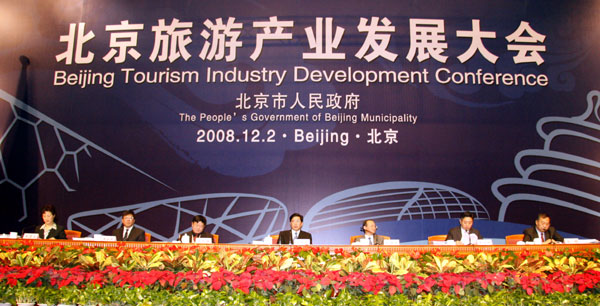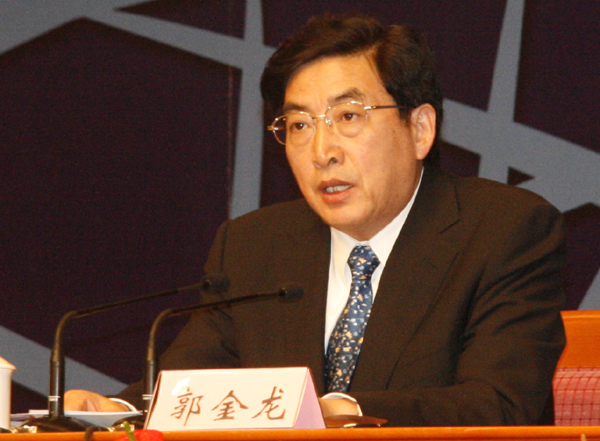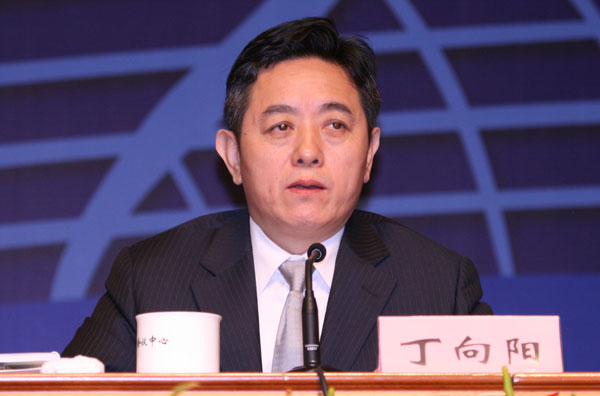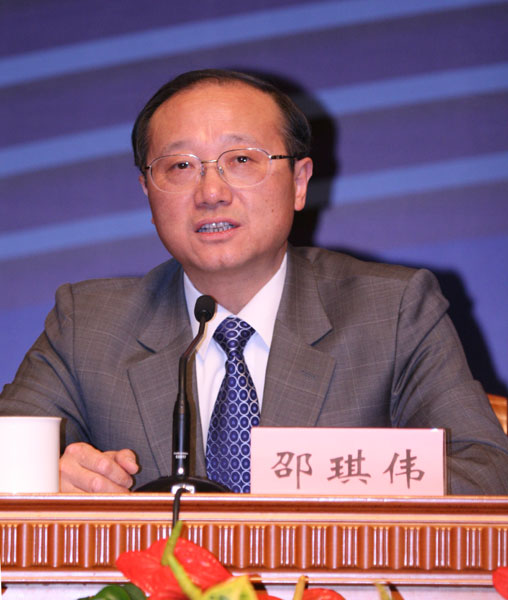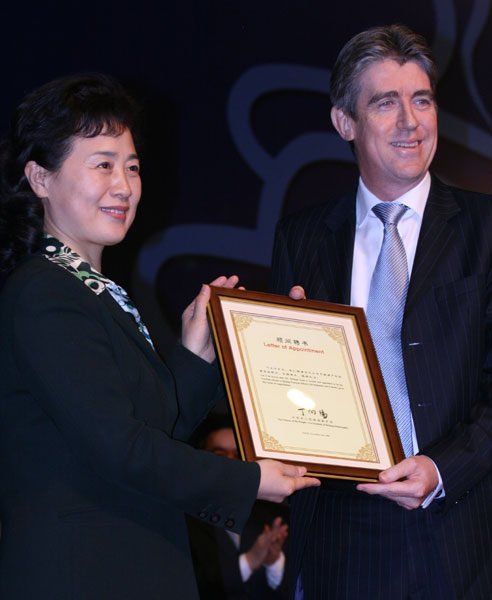Beijing banks on Olympics to boost tourism
- By Wang Zhiyong
 0 Comment(s)
0 Comment(s) Print
Print E-mail
China.org.cn, December 4, 2008
E-mail
China.org.cn, December 4, 2008
|
|
| A major plan to boost the capital's tourism revenue was announced at the Beijing Tourism Industry Development Conference which opened on December 2, 2008 in Beijing. [Photo by Wang Zhiyong/China.org.cn] |
|
|
| Beijing Mayor Guo Jinlong attended the Beijing Tourism Industry Development Conference on December 2, 2008. [Photo by Wang Zhiyong/China.org.cn] |
|
|
| Ding Xiangyang, vice mayor of Beijing, addresses the Beijing Tourism Industry Development Conference on December 2, 2008. [Photo by Wu Yang/China.org.cn] |
|
|
| Shao Qiwei, director of China's National Tourism Administration, addresses the Beijing Tourism Industry Development Conference on December 2, 2008. [Photo by Wu Yang/China.org.cn] |
|
|
| Zhang Huiguang, director of the Beijing Tourism Administration issues the Letter of Appointment of Advisor to Michael Yates, vice president of Pacific Asia Travel Association at the Beijing Tourism Industry Development Conference on December 2, 2008. [Photo by Wu Yang/China.org.cn] |
Beijing is hoping the Olympic factor will give tourism a major boost and help the capital fend off the negative impact of the economic slowdown.
A major plan to boost the capital's visitor numbers was announced at the Beijing Tourism Industry Development Conference which opened on December 2, 2008 in Beijing.
Deputy Mayor Ding Xiangyang acknowledged the capital's tourism sector had suffered a number of setbacks this year, from the ice-rain storms in January and February, the March 14th unrest in Tibet, the May 12th earthquake, as well as the on-going financial crisis. "Great challenges lie ahead of us," Ding warned.
Mr. Shao Qiwei, director of China National Tourism Administration, revealed the extent of the downturn in international visitor numbers. "In the same 10-month period, the number of South Koreans visiting China fell 24 percent year on year, while Japanese tourist numbers were down 16 percent," he said. "The decline will continue next year."
But the domestic travel market remains strong; the outbound sector achieved double-digit growth in the first 10 months, up 14 percent year on year, Shao said.
People may cancel long-distance travel plans because of uncertain economic prospects, but they are likely to take more short-distance trips, Michael Yates, vice president of Pacific Asia Travel Association, told China.org.cn.
The decision makers in Beijing seem to understand that very well. They invited vice governors and tourism directors from nine neighboring provinces and cities to the conference to boost cooperation on tourism. Beijing hopes to lure more tourists from these regions, while they want to attract rich Beijingers in return.
The Summer Olympics highlighted Beijing's attractions and resulted in a surge in tourist numbers during the recent National Day Golden Week (Oct. 1-7). The Olympic Park, home to the Bird's Nest National Stadium and the Water Cube Aquatics Center, attracted 2.17 million visitors during the first six days of the week-long holiday.
The capital's annual revenues from tourism account for around 7 percent of its annual GDP. Beijing hopes to increase it to 10 percent by 2012.
A Tourism Development Guideline was presented to the conference, setting out a four-year plan: by 2012, the number of inbound tourists is forecast to increase by 7 percent a year to 6.1 million, from 4 million in 2007; the number of domestic tourists will reach 183 million with total tourism revenues breaking through the 400 billion yuan (US $60 billion) mark, including US $7.5 billion from overseas visitors.
To realize this goal, the government will take a series of measures, including stepping up tourism promotion and developing leisure facilities.
A total of 83 leisure tourism projects valued at 78 billion yuan were presented to potential investors by Ms. Zhang Huiguang, director of the Beijing Tourism Administration.
"Although the government will not directly fund the projects, it will provide favorable policies to investors and fast-track the approval process," she said.
To help attract overseas visitors, a number of international tourism professionals have been engaged as senior advisors. They include Michael Yates, vice president of Pacific Asia Travel Association, Manny Fontenla-Novoa, CEO of Thomas Cook Group, Paul Kennedy, chairman of Reed Travel Exhibitions, and Tagawa Hiromi, president of Japan's JTB Corp.
|
|
| A major plan to boost the capital's tourism revenue was announced at the Beijing Tourism Industry Development Conference which opened on December 2, 2008 in Beijing. [Photo by Wang Zhiyong/China.org.cn] |
